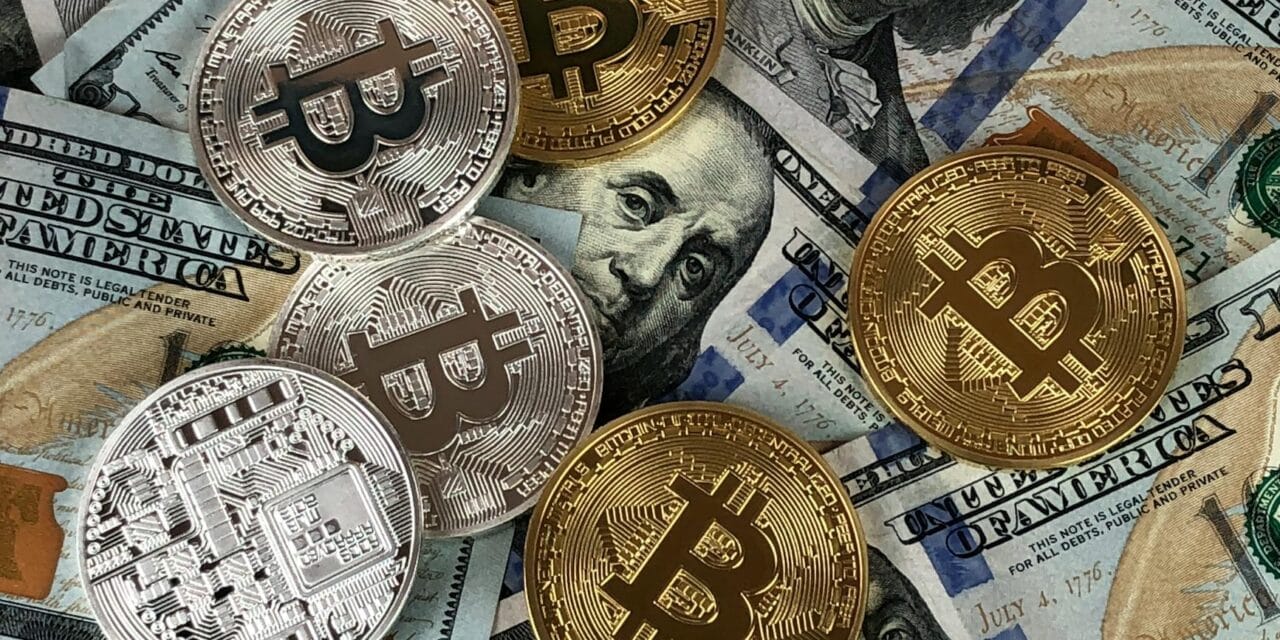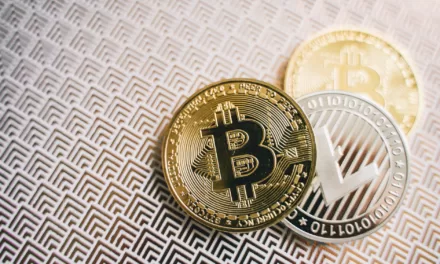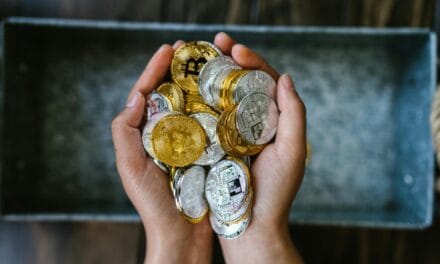This post will examine the challenges of enacting a US strategic Bitcoin reserve. But first, our disclosure:
Disclosure: This post may contain affiliate links, meaning we earn a commission on purchases made through those links at no extra cost to you. As an Amazon Associate, I earn from qualifying purchases.
Disclaimer: The content on this site is for informational and educational purposes only and does not constitute financial, investment, legal, tax, or any other professional advice and should not be used as a substitute for professional advice. For more details, read our full Disclaimer.
An Election And The Promise of a Bitcoin Reserve
After Trump’s 2024 election victory, a strategic Bitcoin reserve has become a hot topic. Bitcoin enthusiasts, or “Bitcoiners,” are excited at the possibility of a Bitcoin reserve becoming a reality. Why wouldn’t they be? The incoming administration is the most pro-Bitcoin and pro-crypto we have ever seen.
During his campaign, Trump promised to establish the US as the crypto capital of the world and expressed support for creating a strategic Bitcoin reserve. He is appointing pro-crypto members to his cabinet and plans to create a ‘crypto czar’ position and a crypto advisory council.
A crypto czar is a high-ranking official responsible for coordinating and implementing the government’s crypto policies. The crypto advisory council is a group of experts who will provide advice and recommendations on crypto-related matters.
The good times do not stop there for Bitcoiners!
Senator Lummis of Wyoming has introduced the BITCOIN Act, which aims to establish a strategic Bitcoin reserve. If passed, her bill would require the United States government to purchase 200,000 bitcoins yearly for five years, totaling 1,000,000. This amount would represent 5% of the total bitcoin supply!
Trump’s election has also sent the “big bad wolf” of crypto, Gary Gensler, the head of the SEC, running for the exits with his tail between his legs. Add the approval of spot Bitcoin ETFs, and Bitcoiners can’t help but dream that a Bitcoin reserve will soon become a reality.
The promise of a Bitcoin reserve has sent Bitcoin’s price flying to almost $100,000 within weeks of the election. This high price has created a sense of euphoria among the Bitcoin crowds, leading to a feeling of inevitability for establishing a strategic Bitcoin reserve in the US.
Why A Strategic Bitcoin Reserve?
With a fixed supply of 21 million coins, Bitcoiners contend that Bitcoin is a harder asset than gold and offers greater growth potential. By diversifying our reserves to include Bitcoin, supporters argue we can hedge against inflation and the national debt while positioning ourselves as leaders in the emerging field of cryptocurrencies. This potential for growth and hedge against the national debt instills a sense of optimism and hope in Bitcoin enthusiasts.
Many supporters argue that a Bitcoin reserve would enhance the dollar’s position in the global market. They believe the US dollar backed by Bitcoin would solidify its status as the world’s leading currency. This reassurance of the dollar’s strength in the global economy is a key aspect of the potential benefits of a Bitcoin reserve.
Supporters believe a Bitcoin reserve can enhance our global competitiveness, ensuring the US remains at the top of international finance. This strategic move would enable the US to capitalize on Bitcoin’s growth, attracting investment and fostering economic growth. In the end, it all comes down to risk versus reward.
Risk and Reward
The initial investment in Bitcoin proposed in the BITCOIN Act is modest, representing only about 1% of US expenditures at today’s prices. If a Bitcoin price falls to $0, the loss would be just a tiny fraction of the US budget. On the other hand, if the United States chooses not to invest and Bitcoin’s value continues to rise, it could miss out on trillions of dollars in potential gains.
For Bitcoin supporters, the potential reward of a Bitcoin reserve far outweighs its risks. We cannot stop the advancement of technology or prevent the Federal Reserve from printing more money and devaluing the currency. For Bitcoiners, creating a strategic Bitcoin reserve is vital to our nation’s prosperity and their own! With Trump now in office, they are closer than ever to realizing this dream.
Learn More
If you’re new to Bitcoin and the concept of a strategic Bitcoin reserve, I highly recommend watching Michael Saylor’s presentation to the investing firm Cantor Fitzgerald. Michael Saylor is the executive chairman and co-founder of MicroStrategy. Under his leadership, MicroStrategy became the first company to convert its corporate treasury from cash to Bitcoin and is now the largest corporate holder of Bitcoin.
I also recommend reading The Bitcoin Standard by Saifedean Ammous. It is a must-read for anyone interested in learning more about Bitcoin. The Bitcoin Standard will take you on a money journey from ancient times to Bitcoin. This book was instrumental in Michael Saylor transforming his multi-billion dollar software company into a Bitcoin powerhouse.
Challenges Facing A Bitcoin Reserve
Creating a strategic Bitcoin reserve may be closer than ever, but that does not mean it will happen. Trump may support it, but the political landscape is complex.
Establishing a strategic Bitcoin reserve faces many challenges and questions. Drafting a bill is one thing, but will Congress pass it? Does the president have the power to establish a Bitcoin reserve through executive order? Can the United States refrain from auctioning off seized bitcoins and hold onto them instead?
Let’s have a look at each of these challenges in more detail.
Bitcoin Reserve Challenge #1: Congress
Even though Republicans won control of the House, Senate, and Presidency in the 2024 elections, there is no guarantee that the BITCOIN Act will pass Congress. Regardless of which party holds all the power, getting legislation passed through Congress is a daunting task. It requires navigating a maze of egos and political favors, and the minority party will oppose any proposals.
There are warning signs that establishing a strategic Bitcoin reserve through Congress will be much more challenging than Bitcoin enthusiasts believe. The most notable sign is the lack of co-sponsors for Senator Lummis’ bill.
No BITCOIN Act Co-Sponsors
While Bitcoiners are excited about the BITCOIN Act, they overlook one major red flag: the act has no co-sponsors. In other words, 99 other senators, Republican and Democrat, did not sign on to the bill. No senator, not even one from Lummis’ Republican party, has chosen to attach their name to the BITCOIN Act.
The absence of a co-sponsor doesn’t mean the BITCOIN Act will fail. However, it is a potential indicator of the interest level among other senators and their constituents.
Voters
Members of Congress ultimately answer to the people. While Bitcoiners have an unwavering commitment and deep knowledge of Bitcoin, most voters don’t. Many voters are skeptical of Bitcoin and consider it worthless, while others think it is a scam.
Bitcoiners don’t want to hear this, but most voters don’t see Bitcoin as a real solution to their everyday problems. They don’t care about the awesomeness of secure hashing algorithms and difficulty adjustments. They care about putting a roof over their heads and food on the table. The reality is that most voters are not interested in Bitcoin and cannot justify investing any money from their tight budgets into it.
How many members of Congress are willing to risk their political careers for something the majority of their constituents don’t own or understand? The answer is not many, which will make passing the BITCOIN Act establishing a Bitcoin reserve a monumental challenge.
Polarization
People who like Trump love him, and people who don’t like Trump loathe him. People who like Bitcoin believe in it, and people who don’t consider it worthless. No matter what side of the fence you are on, this polarization will not make it easy to pass a strategic Bitcoin reserve.
There will be no easy victories for Trump and his administration. Instead, there is a strong likelihood that his actions will face challenges in Congress and the courts. Political and Bitcoin polarization is a major obstacle to establishing a national Bitcoin reserve, regardless of Trump’s intentions.
Slim Majority Equals Gridlock
In 2024, Republicans won control of the House of Representatives by the narrowest of margins and fell far short of securing a filibuster-proof majority in the Senate. As a result, to pass legislation, they cannot afford to lose any Republican votes in the House and need the support of seven Democratic senators to pass legislation that can overcome a filibuster.
It takes sixty senators to break a filibuster. If they fail to break the filibuster, legislation can only be passed by a simple majority using a budgetary process known as reconciliation.
The reconciliation process is complex and challenging. When Congress creates reconciliation bills, it must ensure they do not increase the federal deficit over the next ten years. These bills can only deal with the federal budget and debt ceiling, and Congress can only use this process a few times each year. A Senate Parliamentarian, who serves as a referee, determines which proposals can be included in a reconciliation bill.
Republicans can try to add a strategic Bitcoin reserve to a reconciliation bill, but would they? Do they have the political willpower and voter mandate to do so? Would the Senate Parliamentarian allow it? As you can see, it will not be easy!
Bitcoin Reserve Challenge #2: Limits On Executive Powers
Given the congressional challenges to establishing a Bitcoin reserve, many Bitcoin fans say Trump could create one through executive action. The argument goes that all Trump needs to do is use his executive power and issue an executive order to establish a strategic Bitcoin reserve. It sounds easy enough, but it is far from it.
Although executive power gives the president broad powers, those powers do not include the federal budget and spending. Congress controls the purse strings, not the president. Although many presidents have used executive power as a workaround to congressional gridlock, it is limited. Trump might be able to redirect some funds to a Bitcoin reserve but rest assured his opponents will challenge the move.
Executive orders can be held up in the court system for years, where they may be overturned. Furthermore, the next president can undo the previous president’s executive orders. Since they are issued without Congressional approval, they can also be removed without Congress.
Therefore, even if Trump uses his executive powers to establish a Bitcoin reserve, he may have no way to fund it. He might be able to use seized bitcoins, but the next administration could undo the Bitcoin reserve and sell off the bitcoins. This brings us to the next challenge of creating a strategic Bitcoin reserve: using seized bitcoins.
Bitcoin Reserve Challenge #3: Using Seized Bitcoins
As of late 2024, the US holds almost 208,000 Bitcoins, making it the largest Bitcoin holder among countries. Many of the coins it holds were seized by law enforcement from criminal activity. When the US wants to sell bitcoins, it does so through an auction run by the US Marshals Service. As you can imagine, the US is rather inept at getting the best price for its Bitcoins.
Since Bitcoin is volatile, you must strike while the iron is hot. Unfortunately, bureaucratic red tape makes this almost impossible, as getting approval to sell bitcoins can take weeks. Due to its volatility, a few weeks of waiting for approval can be the difference between selling Bitcoin at an all-time high versus selling it at an all-time low.
Proponents of a Bitcoin reserve cannot bear to watch the US give away bitcoins on the cheap. They argue that the better use of Bitcoin that the government holds is to start a Bitcoin reserve. Why give it away at low prices and let other people get rich from government incompetence? Wouldn’t the US be better off holding onto the Bitcoin?
Bitcoin advocates argue that Trump should utilize his executive powers to stop the sale of Bitcoin and establish a Bitcoin reserve instead. While this idea appears simple, it would necessitate transferring bitcoins to the US Treasury, which would involve many of the same challenges.
Does Trump have the authority to transfer Bitcoin from the Department of Justice to the US Treasury? Would his political opponents challenge this move in court? Could a future president reverse his executive order and sell off Bitcoin? As you can see, utilizing seized Bitcoins for a Bitcoin reserve is not as easy as it may seem.
Conclusion: Challenges Facing A Bitcoin Reserve
The most pro-Bitcoin and crypto administration in history is about to take office in the United States. Along with winning the presidency, the Republicans have gained control of the House and the Senate. As a result, Bitcoin enthusiasts are optimistic that a strategic Bitcoin reserve will finally be created. However, there is no guarantee that this will happen.
As we have seen, implementing and maintaining a strategic Bitcoin reserve poses several challenges. Establishing one through an executive order may seem like the easiest solution, but it’s important to remember that future administrations can revoke such an order.
An executive order does not carry the same weight as legislation passed by Congress. Don’t assume that a future president wouldn’t sell off the reserve, regardless of its market value, if it served their political interests. So, for those in favor of a strategic Bitcoin reserve, passing a bill in Congress is the most effective route. A bill would legally establish the reserve, detailing purchase amounts and holding periods.
Passing a strategic Bitcoin reserve bill through Congress will not be easy. However, once it is enacted, it will be challenging to reverse. Rescinding the strategic Bitcoin reserve would require Congress to pass another bill to dismantle it, which won’t be simple—especially if Bitcoin’s price increases and more voters begin including it in their investment portfolios.
So, where do you stand? Are you in favor of a Bitcoin reserve or against it? Do you see the creation of a US strategic Bitcoin reserve as a move toward innovation and prosperity, or do you consider it a waste of money on a worthless internet currency?
In the end, Trump and Congress will decide for us whether we like it or not. So buckle up! Things are about to get interesting,






